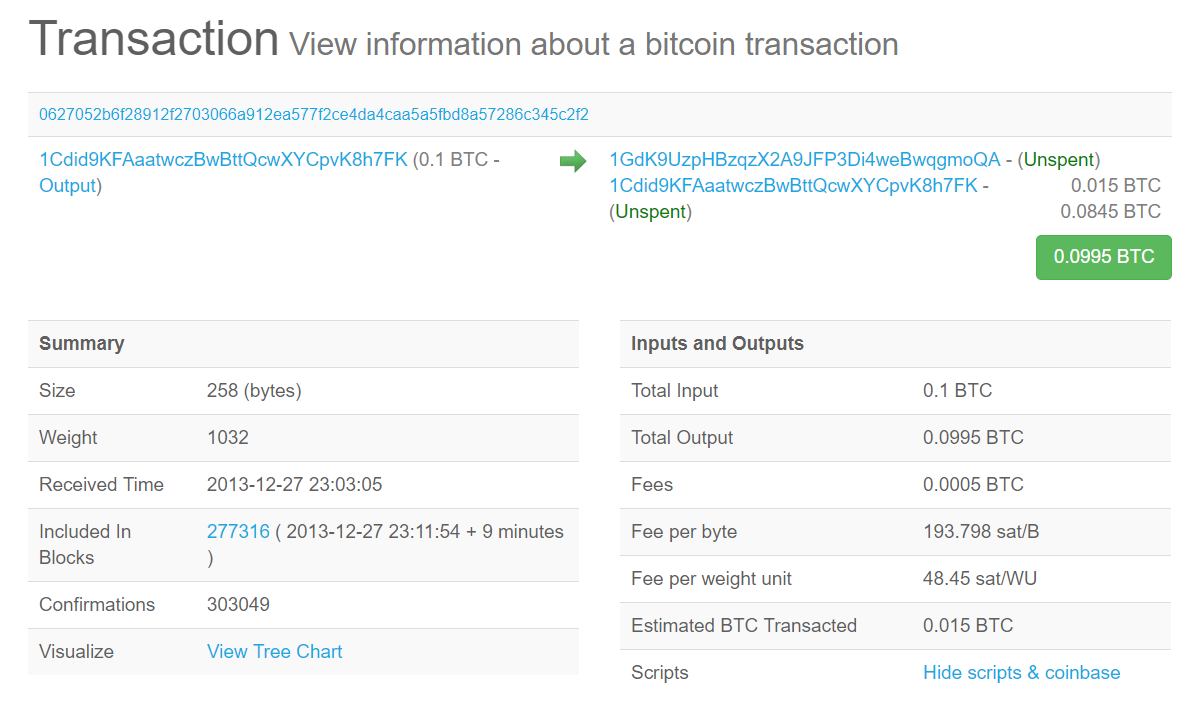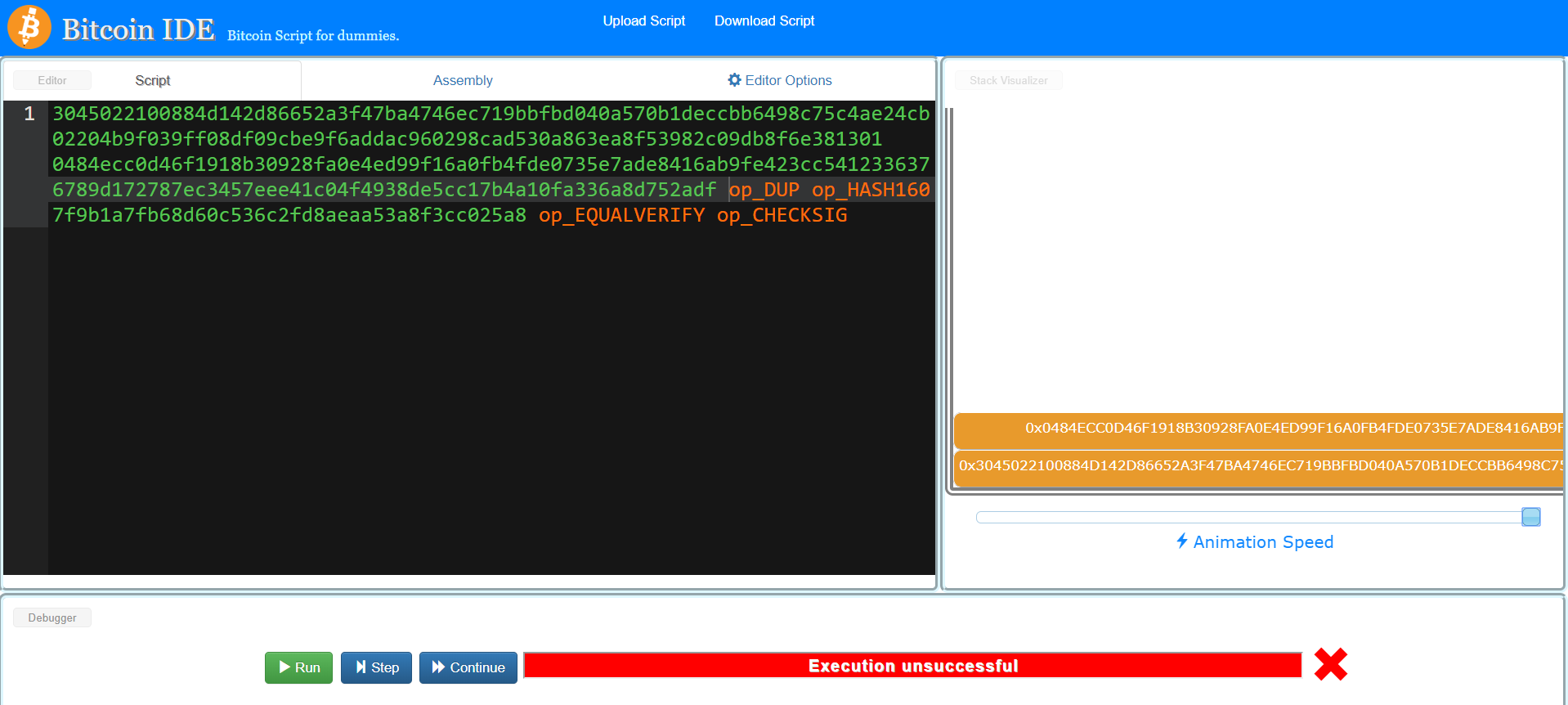I'm working my way through "Mastering Bitcoin".
The author made a transaction:
0627052b6f28912f2703066a912ea577f2ce4da4caa5a5fbd8a57286c345c2f2
 https://www.blockchain.com/btc/tx/0627052b6f28912f2703066a912ea577f2ce4da4caa5a5fbd8a57286c345c2f2
https://www.blockchain.com/btc/tx/0627052b6f28912f2703066a912ea577f2ce4da4caa5a5fbd8a57286c345c2f2
I tried to execute the transaction script (with the Unlock script in vout) in a Bitcoin Script online simulator: https://siminchen.github.io/bitcoinIDE/build/editor.html putting the current ScriptSig:
ScriptSig: PUSHDATA(72)[3045022100884d142d86652a3f47ba4746ec719bbfbd040a570b1deccbb6498c75c4ae24cb02204b9f039ff08df09cbe9f6addac960298cad530a863ea8f53982c09db8f6e381301] PUSHDATA(65)[0484ecc0d46f1918b30928fa0e4ed99f16a0fb4fde0735e7ade8416ab9fe423cc5412336376789d172787ec3457eee41c04f4938de5cc17b4a10fa336a8d752adf]
with the output script:
DUP HASH160 PUSHDATA(20)[7f9b1a7fb68d60c536c2fd8aeaa53a8f3cc025a8] EQUALVERIFY CHECKSIG
according the blockchain explorer.
I got "execution unsuccessful" even though i didn't figure out what's the problem. Apparently the op_EQUALVERIFY got failed.

